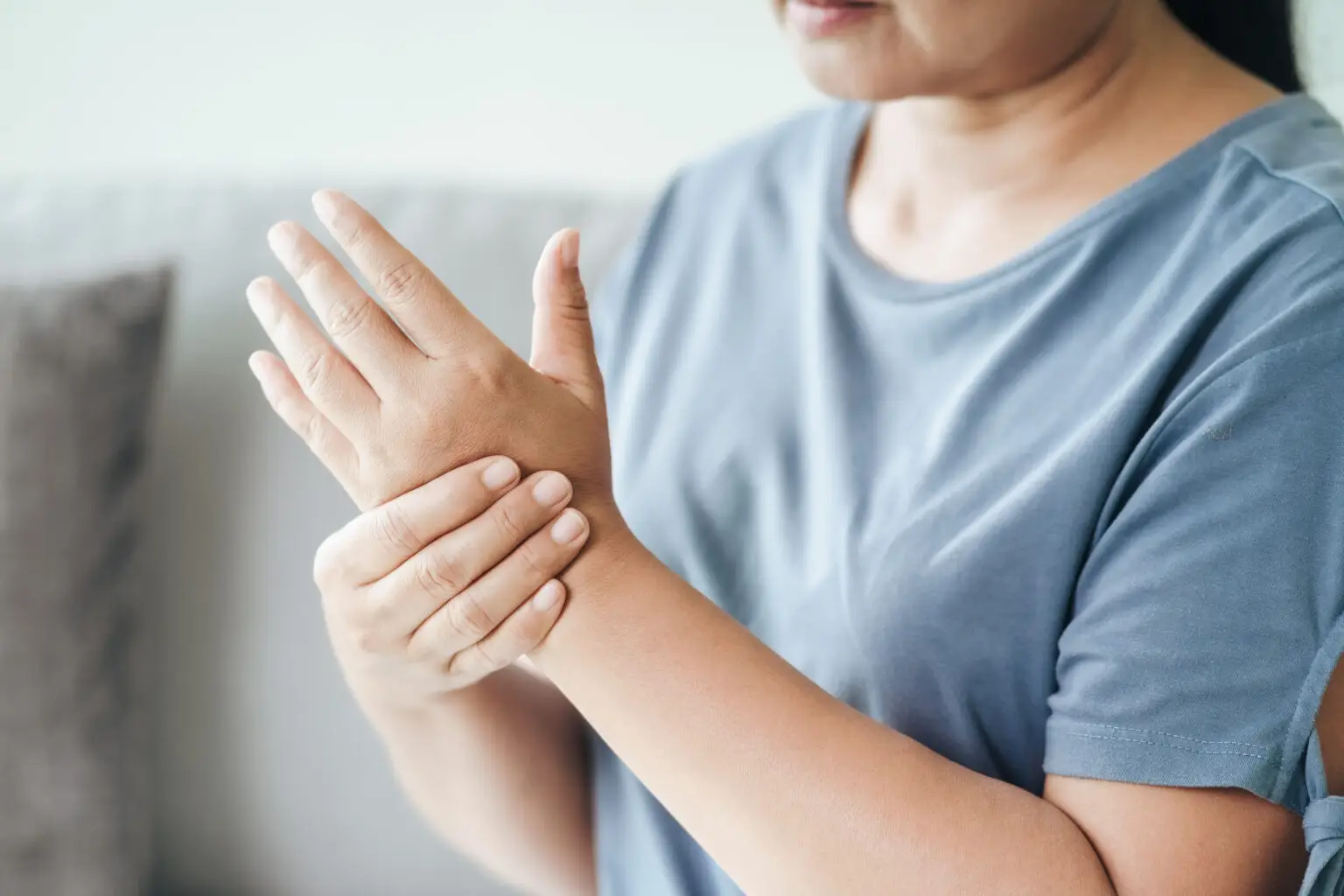Over 30% of breast cancer patients who undergo surgery or radiation therapy develop lymphedema, a swelling of the arm or hand that occurs when the lymphatic system is damaged or blocked. Breast surgery and radiation can damage the lymph nodes and vessels in the axillary region leading to the condition. While not all breast cancer patients will develop lymphedema, it can be a very distressing complication so it’s important to understand the signs and have a plan for how to manage this condition if it does occur.
“I was surprised when my arm started swelling after my breast cancer surgery. It was scary to think that something else could go wrong, but I learned that lymphedema is a common complication.”
– Amanda, stage II breast cancer survivor
Managing lymphedema
While there is no cure for lymphedema, there are several strategies that can help to manage the condition and reduce its impact on daily life. These may include:
Compression garments
Wearing a compression sleeve or glove can help to reduce swelling and promote proper circulation in the affected arm. These garments are designed to provide gentle pressure on the arm, which helps to promote lymphatic flow and prevent fluid buildup.
“As someone who has been dealing with lymphedema for several years, I have found compression garments to be incredibly helpful in reducing swelling.”
– Barbara, stage 0 DCIS breast cancer survivor
Exercise
Regular exercise can help to improve lymphatic flow and reduce swelling. Low-impact exercises, such as walking, cycling, or swimming, are particularly beneficial. However, it is important to avoid activities that may exacerbate lymphedema, such as lifting heavy weights or playing contact sports.
“Physical therapy has been a game-changer for my lymphedema management. My therapist has taught me exercises and stretches that help to improve my range of motion and reduce swelling.”
– Kourtney, living with stage IV TNBC
Manual Lymphatic Drainage
This technique involves gentle massage of the affected area to promote fluid movement and improve lymphatic flow. Manual lymphatic drainage should only be performed by a certified lymphedema therapist, as improper technique can worsen the condition.
Skin Care
Taking good care of the skin is important when managing lymphedema. This includes keeping the affected area clean and moisturized, avoiding cuts or scratches, and protecting the skin from extreme temperatures and sun exposure.
Seeking Medical Treatment
In severe cases, surgery may be required to remove excess tissue or repair damaged lymph vessels. If you experience any worsening of your lymphedema symptoms, such as increased swelling or pain, it’s important to seek medical treatment right away. Your oncology team can recommend various treatments, such as compression pumps, medications, or surgery, to help manage your symptoms.
Lymphedema is a potential complication of breast cancer treatment that can have a significant impact on daily life. However, by understanding the risk factors and taking steps to manage the condition, breast cancer patients can reduce its impact and maintain their health and well-being.
Take control of your care by keeping a detailed log of your lymphedema-related symptoms using the Symptoms Tracker in the Outcomes4Me app. Then, you can use these insights to talk to your oncology team about managing this condition effectively.




